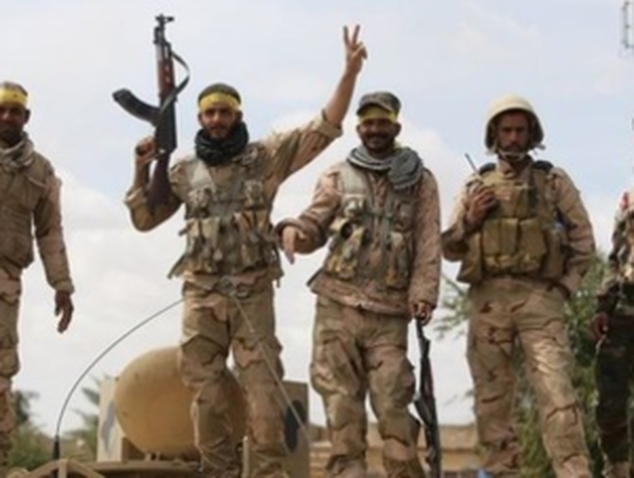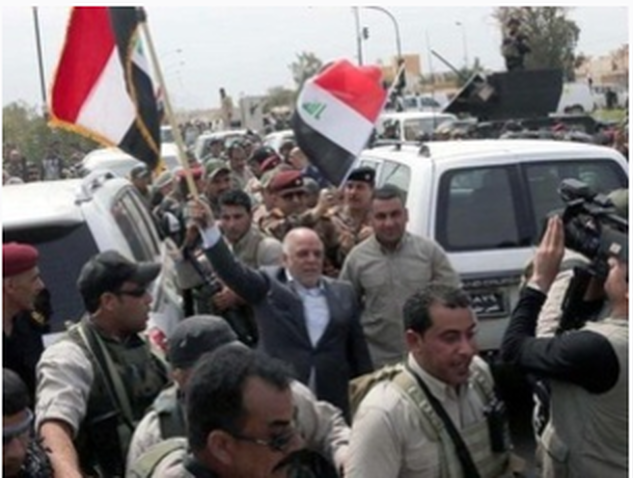The militia made up the vast majority of pro-government forces that retook the city over the past week.
But people in Tikrit say the city's liberators have since stolen cars and ransacked government buildings.
Tikrit was captured by Islamic State in June last year in what was an important strategic victory for the group.
Mob action
Iraqi Prime Minister Haider al-Abadi has ordered the arrest of anyone caught looting, but reports suggest the actions of the pro-government paramilitaries have gone beyond theft.
A correspondent for Reuters reported seeing an Islamic State fighter surrounded by a mob and stabbed to death, as well as the corpse of another being dragged by a car.
Ahmed al-Kraim, head of the city's Salahuddin Province council, told the news agency that mobs had burned down "hundreds of houses".
Government officials have attempted to distance the army from the reports, blaming the violence and looting on local Sunni tribal fighters.
Ahmed Salim Noreldin, an Iraqi soldier, told the BBC that IS militants had booby-trapped the streets with IEDs as they retreated, leaving the doors of homes and shops open on their way.
Mahmoud Al-Sadi, a captain in Iraq's federal police command, said that soldiers were attempting to defuse the bombs to allow residents to return.
Iraqi army officials say Tikrit is now completely free of IS. "The nearest IS position is 45km (27 miles) away," said Captain Al-Sadi. "There are no resistance pockets inside Tikrit."
The offensive launched on 2 March to take back Tikrit involved some 30,000 fighters, two-thirds of them from the Popular Mobilisation (Hasid Shaabi) - a force comprising dozens of Iranian-backed Shia militia.
The operation was initially co-ordinated by Iranian military advisers led by Gen Qasem Soleimani.
Before the government assault on the city, fears had been voiced of the risk of sectarian reprisals by the Shia militia in the predominantly Sunni area.
Militia leaders had vowed to seek revenge for the massacre of at least 700 soldiers, mostly Shia, at Camp Speicher near Tikrit in June 2014.
The Iraqi army is now expected to its attention to Mosul, 225km north along the Tigris river.
IS's most significant stronghold in Iraq, Mosul presents a far greater challenge than Tikrit for the US-led air coalition and Iraqi ground forces.
Read More



 RSS Feed
RSS Feed